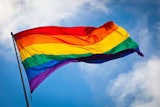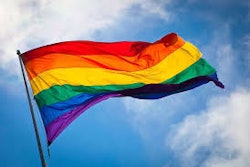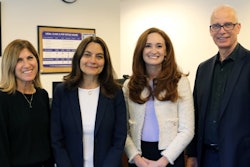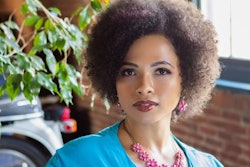Gay Leaders Seek to Bridge Racial Divide
RICHMOND, Va.
Each year, Equality Virginia director Dyana Mason kicks off the summer with two road trips: One to Washington’s Black gay pride celebration in May, and a second to its predominantly White June counterpart, Capital Pride.
Through the fall, similar celebrations will unfold in major cities across the nation, underscoring a racial rift some say splinters gay America when a united front is needed most.
National gay and lesbian groups are responding with marketing campaigns and old-fashioned schmoozing to win over minority gays — who argue White activists want their votes on national issues, but rarely include poverty, racism and other minority concerns on their agendas.
“We have this rainbow of unity — ‘We’re all in it together,’” said Earl Fowlkes, president of the International Federation of Black Prides. “Truth be told, it’s not that way.”
His group represents over 23 annual Black pride celebrations drawing thousands of Black gays to cities such as New York, Chicago and Atlanta. Such culture-specific celebrations are on the rise as the face of gay America shifts from the White male stereotype.
Roughly 4 million gay or lesbian adults live in the United States, according to the Gay and Lesbian Atlas, compiled by the Urban Institute in Washington, D.C. Among them are large groups of Hispanics and Blacks; in Los Angeles, for example, the atlas found Hispanics lead 32 percent of all same-sex households.
Black gays are primarily in the South, heading more than one quarter of gay households in New Orleans and all of Mississippi, at least statistically.
The numbers say minorities are just as prevalent as Whites. So why then, do their faces number so few at national gay rights events?
In 2000, the Human Rights Campaign set out to answer that question. Officials surveyed leaders in several communities of color across the country. The results were sobering.
“Their perceptions of us were rich, White male elitist organization with low investment in issues facing the multicultural community,” recalled Donna Payne, senior diversity organizer with the D.C. group, the nation’s largest gay rights advocacy organization.
In addition to creating Payne’s position, leaders responded by showcasing work by Black, gay filmmakers in their Washington D.C. store, establishing a gospel social and an outreach program to mentor gay youth at historically Black colleges.
Perhaps most importantly, top HRC brass began frequenting Black pride parades and parties. “Overall, we understand that we have to be able to have room under the umbrella for everyone,” Payne said.
Despite the changes, frustrations linger. For one, Latinos shrink from organizations that think translating documents into Spanish is enough, said Noemi Perez, a Virginia gay rights advocate. She called for more Hispanic hires from the community — not hand-picked people whose main qualification is a Spanish surname.
“You can’t just transplant an individual who is Latino,” she said. “That is a big piece of the puzzle as to why it’s hard for these organizations to bring the communities to the table.”
Hispanics and Blacks say they feel distanced from a national gay rights agenda focused on same-sex marriage. Fowlkes and Perez named “existence issues” such as poverty, discrimination and job stability as primary for minority gays — not wedding bells.
“If I don’t have the money I need to have food in my refrigerator or to get on a bus to get to work, the whole issue of the right to marry, that’s secondary,” Perez said. “The lives of the folks on ‘Will and Grace’ are not necessarily reflective of the lives of gay Latinos.”
With anti-gay measures gaining ground nationwide, the argument for uniting across racial lines is strong.
Last fall saw gay marriage bans approved in all 11 states that held referendums, including Georgia, Mississippi, Arkansas and Kentucky.
Anti-gay forces are seeing an increasingly ripe target in minority communities, said Rodney McKenzie, project director with the National Gay and Lesbian Taskforce.
“We are seeing even more so how the other folks are using people of color’s voices and positions against the gay movement,” McKenzie said, pointing to an increase of homophobic rhetoric among Black pastors that culminated with anti-gay marriage rallies in Atlanta and around the country.
Fowlkes said the sudden, vocal campaigns have left many of the nation’s largest gay groups scrambling to respond and build bridges with Black leaders.
With Black and Hispanic populations booming across the country, Fowlkes said such disconnects will become increasingly costly at the polls. He cited the 2004 presidential election and precincts where he believes Republicans won by margins as slim as 200 votes.
“There’s enough Black gay folk in those places to make a difference,” he said.
In Richmond, Va., Mason’s staff is taking baby steps to diversify. In April, the flagship Virginia gay rights group hosted an awards dinner with NAACP Chairman Julian Bond.
Still, Mason lists a concern of many White gay leaders: In areas where minority gay communities aren’t well-organized, reaching across racial lines is nearly impossible.
“We don’t have a Richmond Black gay pride, for example,” she said. “We don’t have that type of opportunity for us to really find who these folks are.”
But the responsibility for reaching out is not all on Whites, argued Rick Rosendall, vice president for political affairs with the Gay and Lesbian Activist Alliance.
Rosendall said he and other Whites feel slighted by minorities who too often criticize their efforts to help, or worse, ignore them.
“Even if everybody who was ever born white deserves to be drowned in the river,” he said, “many of us have worked very hard to move discussions.”
— Associated Press
© Copyright 2005 by DiverseEducation.com



















